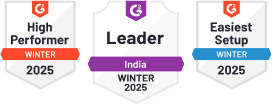Social Media Analysis Interview
Familiarity with Social Media Management Tools
Certainly, I’m familiar with various social media management tools that facilitate effective planning, scheduling, and analysis of content across different platforms. Hootsuite, Buffer, and Sprout Social are notable for their comprehensive features, including post scheduling, engagement tracking, and analytics.
Tools like Later and MeetEdgar specialize in content scheduling and recycling, ensuring a consistent posting schedule. CoSchedule integrates social media management with content marketing, providing a holistic approach. Canva, primarily a design tool, offers social media scheduling capabilities, allowing users to create visually appealing posts. These tools collectively enhance efficiency in managing social media accounts and optimizing online presence.
What motivated you to pursue a career in social media analysis?
I was motivated to pursue a career in social media analysis due to a deep fascination with the dynamic landscape of online interactions. Witnessing the profound impact of social media on shaping opinions and trends, I developed a keen interest in deciphering the patterns and insights hidden within the vast amounts of data generated daily. The opportunity to uncover actionable intelligence, optimize content strategies, and contribute to informed decision-making in the ever-evolving world of social media was a compelling driver for me.
Motivation for Career in Social Media Analysis
Driven by a fascination with the dynamic landscape of online interactions and the impact of social media on shaping opinions and trends, leading to a focus on deciphering patterns and insights from data.
When Is The Best Time To Post On Social Media?
The best time to post on social media depends on the platform and the target audience. Generally, research indicates that optimal posting times vary:
- Facebook: Weekdays 9 AM to 3 PM, especially Thursday and Friday.
- Instagram: Lunchtime (11 AM to 1 PM) and evenings (7 PM to 9 PM).
- Twitter: Early afternoons on weekdays (1 PM to 3 PM).
- LinkedIn: Midweek, especially Wednesdays, 8 AM to 10 AM or 12 PM.
Can You Tell Me About Your Social Media Monitoring And Response Process?
Certainly! My social media monitoring and response process involves using advanced tools to track brand mentions, relevant keywords, and industry trends in real-time. I prioritize active listening to understand audience sentiment and concerns. Swift responses are crafted to engage with positive comments, address inquiries, and manage any negative feedback. This proactive approach not only ensures timely interactions with the audience but also helps in building and maintaining a positive online reputation.
Learn all HR terms with Superworks
From hiring to retiring, manage the whole business with 1 tool
Describe Your Approach To Conducting A Social Media Audit For A Brand Or Company.
When conducting a social media audit for a brand or company, I adopt a comprehensive approach. I begin by assessing the current state of the brand’s online presence across various platforms. This involves a thorough examination of content performance, audience engagement, and the consistency of messaging. I analyze key metrics such as reach, engagement rates, and follower growth. Additionally, I evaluate the effectiveness of current strategies and identify areas for improvement.
How Do You Measure And Analyze The Impact Of Social Media Efforts On Brand Awareness?
To measure and analyze the impact of social media efforts on brand awareness, I rely on a combination of quantitative and qualitative metrics. Quantitatively, I track key performance indicators (KPIs) such as reach, impressions, and follower growth. These metrics provide a numerical representation of the brand’s visibility and audience expansion. Qualitatively, I employ sentiment analysis to gauge audience perception and brand sentiment. Monitoring brand mentions and engagement levels helps in understanding how the audience interacts with the content.
Share Your Experience With Social Media Listening Tools. How Do They Enhance Analysis?
To measure and analyze the impact of social media efforts on brand awareness, I rely on a combination of quantitative and qualitative metrics. Quantitatively, I track key performance indicators (KPIs) such as reach, impressions, and follower growth. These metrics provide a numerical representation of the brand’s visibility and audience expansion. Qualitatively, I employ sentiment analysis to gauge audience perception and brand sentiment. Monitoring brand mentions and engagement levels helps in understanding how the audience interacts with the content.
Conclusion
The Social Media Analyst interview questions aim to assess a candidate’s comprehensive understanding of social media dynamics, analytical skills, and strategic thinking. Candidates should demonstrate proficiency in leveraging various tools for monitoring, analyzing, and responding to social media activities. Effective communication, adaptability to industry trends, and the ability to derive actionable insights from data are key attributes.





